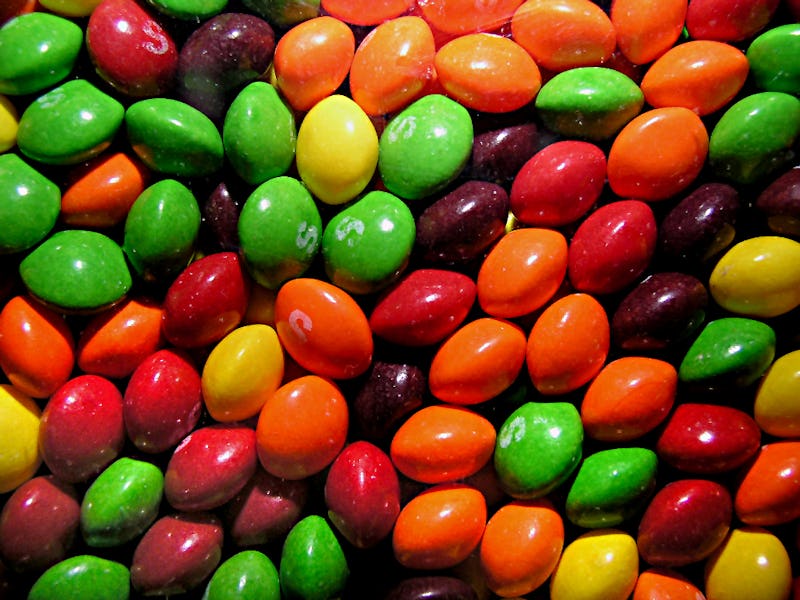Donald Trump Jr. Totally Botched Skittle-Science
There's actually a correct way to use candy in social experiments ... but this isn't it.

On Monday, Donald Trump Jr. asked Americans to imagine the estimated 11 million Syrian refugees as Skittles. “If I had a bowl of skittles and I told you just three would kill you. Would you take a handful?” the post demands.
The flawed analogy has been floating around conservative circles for months, but it looks like Trump Jr. dug it up from an old Imgur post stamped with Trump/ Pence branding. Let’s be clear upfront: Skittles are definitively not an accurate analogy for people, and baby-Trump’s post was logical garbage. However, Skittles are an accurate representation for how people are likely to allocate resources.
Social scientists regularly use Skittles to highlight human’s proclivity for fairness and it’s what is considered to be fair that underlies the interpretation of Trump Jr.’s message. By Trump Jr.’s assertion, this scenario illustrates the “Syrian refugee problem” and the need to end a “politically correct agenda that doesn’t put America first.” The question itself is a logical fallacy (the actual risk of an American being killed by a refugee in a terror attack is 1 in 3.64 billion) and an inept analogy (a comparison of candy to one of the worst human rights disasters in history), but it does illustrate the disparity of the interpretation of fairness in America.
In a 2014 study in the journal Cognition, five- and six-year-old children were asked to accept or reject proposed allocations of Skittles between an imagined pair of children who weren’t present. If the kid rejected the allocation, researchers figured they were actually rejecting unfair proposals, which actually happened: The six-year-old kids were equality enforcers — when an unequal allocation came up, they chose to reject all Skittles rather than have one kid have more than another.
A closer examination of this scenario published in 2015 revealed that this proclivity for fairness can easily turn into bitterness. In this experiment, two children sat on either side of trays with red and green handles —pulling the green handle brought the Skittles towards them and the red handle put them back in the bowl. The researchers found that when kids were offered a “good deal” (an equal amount of Skittles per child) they’d pull the green handle and get the goodies. When they were offered a “bad deal” (the other kid was offered more) they would refuse all Skittles out right — they’d rather get none when watching another kid get more.
“Kids are willing to pay the price to prevent the bad deal,” study author Peter Blake said in a statement. “And it just becomes stronger with age.”
Skittles were again a fairness analogy for a 2011 study that asked 8th graders to play a poverty game titled “Poor Me.” In this scenario, Skittles represented the limited resources of impoverished people. The students had to allocate the Skittles in a way that helped them escape poverty — and had “inherent difficulties” in ever actually doing so.
So when Trump Jr. equates allowing refugees into American borders with “putting America first” (whatever that entails), he is determining what he sees as a fairness of resource allocation. Here the resource is a basic need — security. He has judged that a “fair” way for Americans to feel safer than refugees is by denying them admission to the United States. That logic (again, it doesn’t make sense if you actually crunch the numbers) can be twisted to work if you do think that Americans deserve more than other people.
Lesson? A Skittle doesn’t represent a person — but it can represent a denial of basic human rights.